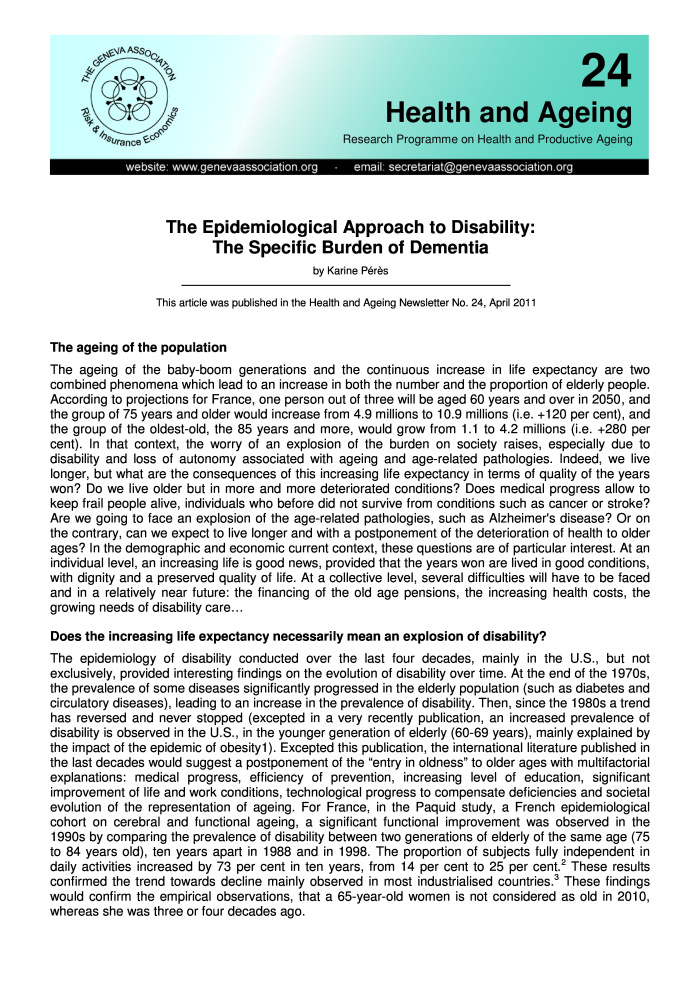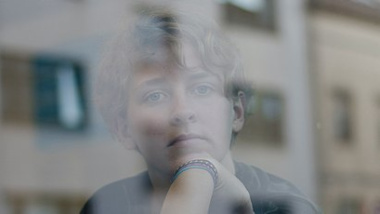The Epidemiological Approach to Disability: The Specific Burden of Dementia

The ageing of the baby -boom generations and the continuous increas e in life expectancy are two combined phenomena which lead to an increase in both the number and the proportion of elderly people. According to projections for France, one person out of three will be aged 60 years and over in 2050 , and the group of 75 years and older would increase from 4. 9 millions to 10.9 millions (i.e. +120 per cent) , and the group of the oldest -old , the 85 years and more, would grow from 1. 1 to 4.2 millions (i.e. +280 per cent) . In that context, the worry of an explosion of the burden on society raises , especially due to disability and loss of autonomy associated with ag eing and age-related pathologies. Indeed, we live longer, but what are the consequences of this increasing life expectancy in terms of quality of the years won? Do we l ive older but in more and more deteriorated conditions? Does medical progress allow to keep f rail people alive, individuals who before did not survive from conditions such as cancer or stroke? Are we going to face an explosion of the age-related pathologies , such as Alzheimer's disease? O r on the contrary, can we expect to live longer and with a postponement of the deterioration of health to older ages? In the demographic and economic current context, these questions are of particular interest. At an individual level, an increasing life is good news, provided that the years won are lived in good conditions, with dignity and a preserved quality of life. At a collective level, several difficulties will have to be faced and in a relatively near future: the financing of the old age pensions , the increasing health cost s, the growing needs of disability care?




